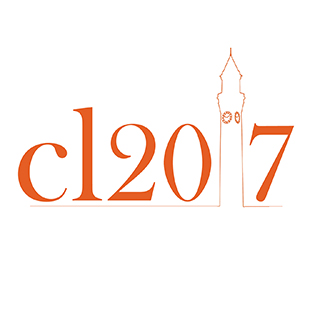Corpus-based approaches to sign language linguistics: Into the second decade
 Workshop convenor
Workshop convenor
Adam Schembri
University of Birmingham
a.schembri@bham.ac.uk
Workshop programme
- Programme, updated 12 June 2017 [PDF, 484 KB]
- Monday, 24 July, 8.45-5.30
Workshop summary
As pointed out in the Mission Statement of the Sign Linguistics Corpora Network (http://www.ru.nl/slcn/mission-statement/), documentation and description of the sign languages of deaf communities has presented linguists with specific problems due to the lack of widely adopted writing and/or notation systems, the relatively brief history of sign language linguistics, and the minority status of these languages within larger spoken language communities. Since the end of the twentieth century, however, technological advances have facilitated the development of digital tools for the collection and annotation of sign language data, making the creation of digital video corpora of sign languages possible for the first time. There are growing numbers of sign language researchers now creating large-scale sign language corpora that are informing linguistic research and benefiting sign language communities in areas such as sign language teaching and interpreter training, as well as also assisting in the further development of language technology. The first sign language corpus linguistics workshop was held at the 2008 International Conference on Language Resources and Evaluation in Marrakech, Morocco. Almost ten years later, this workshop at the University of Birmingham will be the first time that a day devoted to this topic has been part of the International Corpus Linguistics Conference series. The aim of this one-day workshop is to bring together researchers in the growing field of corpus-based approaches to the linguistics of sign languages. The aim of the workshop is discuss the latest developments in data collection, metadata, annotation and exploitation of sign language corpora, as well as the new insights into sign language description and linguistic theory that are emerging from the use of corpus-based approaches. What are the descriptive and theoretical challenges being encountered and what solutions are being proposed? What kinds of linguistic data are being collected? What linguistic and sociolinguistic factors are being considered in corpus design? What standards for linguistic tagging and metadata are being used and how can these be improved? What kinds of linguistic research questions are being addressed using sign language corpus data? What kinds of linguistic evidence can corpora provide? What implications does sign language corpus work have for linguistic theory/theories? We invite abstracts for papers or posters on descriptive, theoretical and applied linguistic issues in corpus-based approaches to sign language research, including the following topics:
- Issues in building sign language corpora, including annotation and metadata descriptions
- Findings from sign language linguistics research using corpora
- Use of corpora in sign language teaching and learning
- Use of parallel corpora in sign language research, and interpreting/translation studies
- Language documentation, archiving and preservation of sign language data
- Linguistic issues in the development of annotation software and automated sign language recognition
As reflected in the workshop title, preference will, however, be given to abstracts that report on the use of corpora to advance the linguistic study of sign languages.
Please send your abstract (300-500 words) by email to a.schembri@bham.ac.uk no later than February 28th, 2017). In your message, please indicate your preference for presentation format: signed/spoken paper or poster.